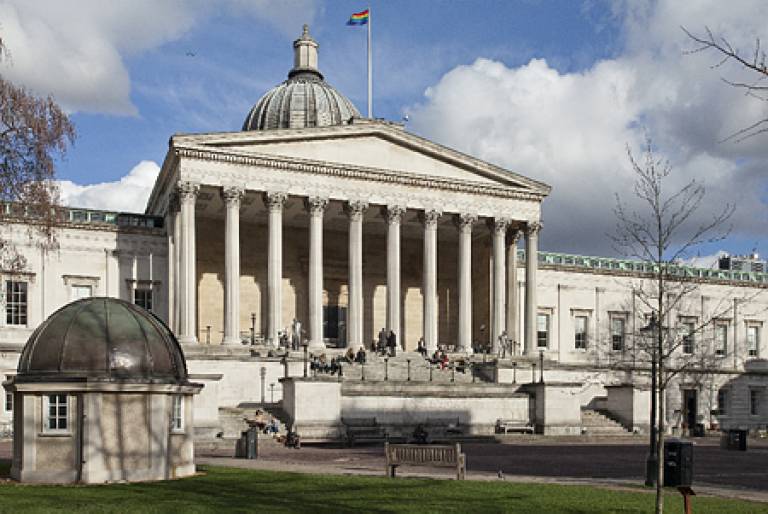EPSRC Studentship - Metrology of crowd sourced data in heritage science
24 June 2015
The UCL Institute for Sustainable Heritage invites applications for a fully funded 4-year PhD studentship funded by the EPSRC (subject to eligibility).

Overview
This project will study the accuracy and repeatability of crowd-sourced scientific data in heritage science. This challenging and urgent research problem has not been properly addressed in any scientific field. If you have a science or engineering background, some knowledge of statistics and an interest in heritage and public engagement, if you are creative and enthusiastic, and ready to work in a multidisciplinary team, this could be a project for you. The skills you will develop are highly competitive in any research or entrepreneurial environment.
Smart technologies are becoming ubiquitous. In a few years, most of the world's population will have access to sensor-packed and network-enabled smartphones. It is evident that this growing technical capacity for producing and sharing data will have a great impact in many scientific disciplines. Crowd sourced scientific information is already being used to map urban environments and pollution, to identify images taken by telescopes, even to investigate protein structures with contributions from internet users. However, by definition, crowd sourcing involves the contribution of untrained and unsupervised users. This adds noise and uncertainty to crowd-sourced data. This noise is currently poorly understood.
The emergence of public data generation can bring a paradigm shift to the field of heritage science. While visitors to museums, historic houses and sites engage with heritage, the increasing portability and availability of sensors might mean that they could also contribute to measurement, assessment and even chemical analysis of heritage materials, objects and sites. This offers an opportunity to monitor change and gather more information at greater rates and at a lower cost, while sharing heritage science with the public. We therefore need to study what aspects of this measurement process affect the quality of crowd sourced scientific data.
Aims
This project aims to calibrate the crowd as an analytical instrument. Our research questions are:
1. What is the signal to noise ratio in crowd-sourced measurements?
2. What experimental variables significantly affect the validity of such data?
3. What types of crowd-sourced measurements, e.g. colour, shape, concentration, composition, lend themselves to scientific relevance?
4. What are the conditions that crowd sourcing has to satisfy, e.g. number of users, frequency of data transmission, level of engagement, to guarantee scientific relevance?
These questions will be answered by collecting and analysing different types of crowd-sourced scientific data. You will use sensors embedded in common smartphones (e.g. photographs or location) as well as novel, low-cost sensors for pollution, environment or spectroscopic analysis. While the data will be contributed by the crowd it will be compared with actual measurements produced with calibrated scientific instruments. Creative experimental design will be a key component of the project in order to engage not only the public but also heritage institutions that you will work with.
Please note eligibility criteria
Application Procedure
Informal enquiries on the content of the research topic and Pre-application documents - (1) CV, (2) 1-page personal statement outlining motivation, interest and eligibility for the post, and a (3) research proposal addressing the research questions of less than 2000 words - should be emailed directly to Dr Josep Grau-Bove (josep.grau-bove.11@ucl.ac.uk).
Pre-application is ongoing until the post is filled.
After interview, the successful candidate(s) will be required to formally apply online via the UCL website: http://www.ucl.ac.uk/prospective-students/graduate/research/degrees/sustainable-heritage-mphil-phd
 Close
Close

